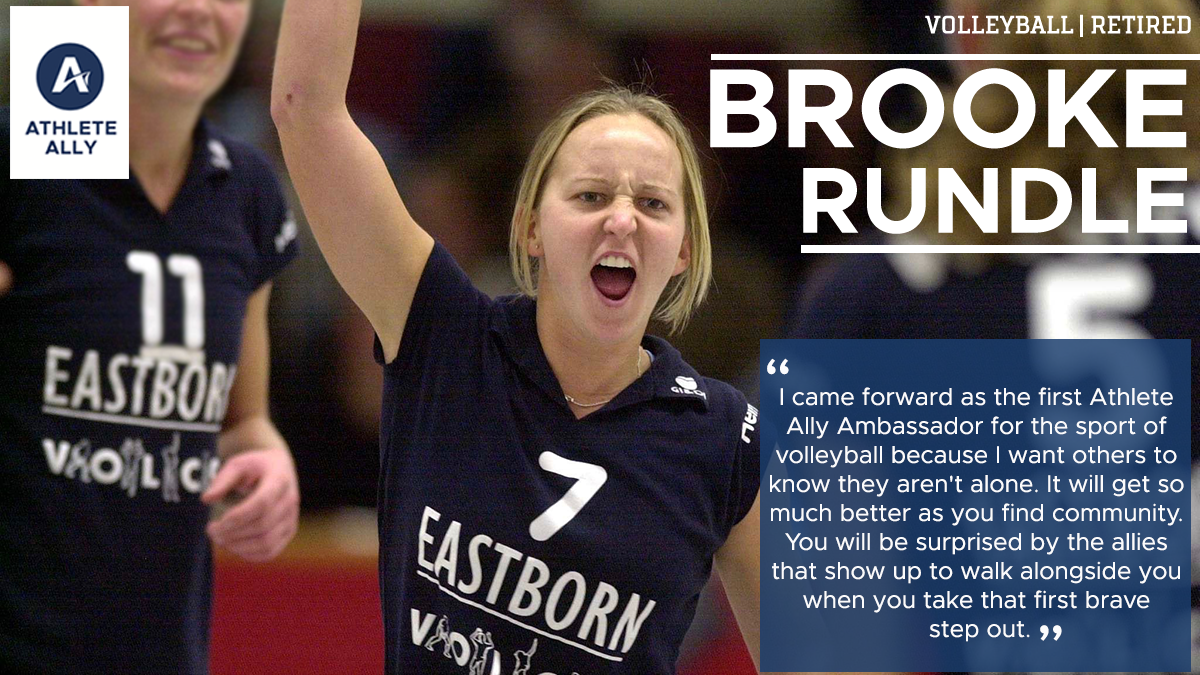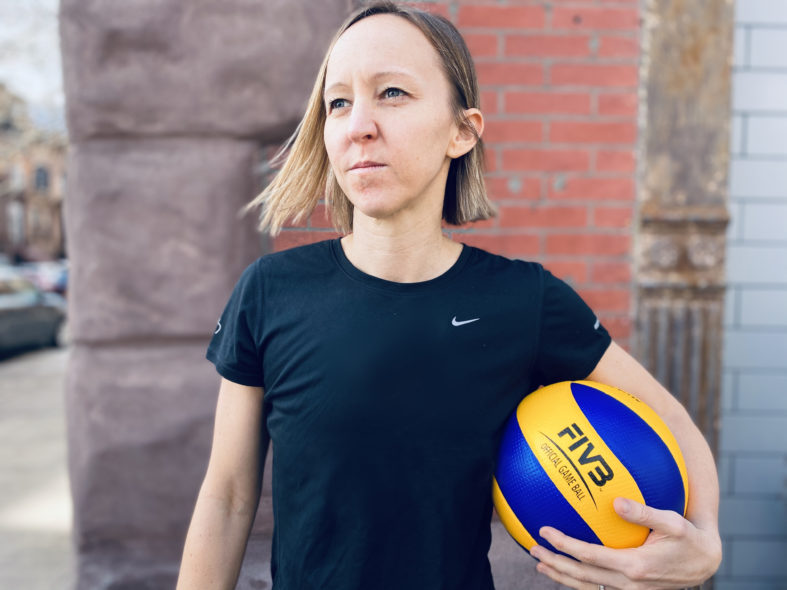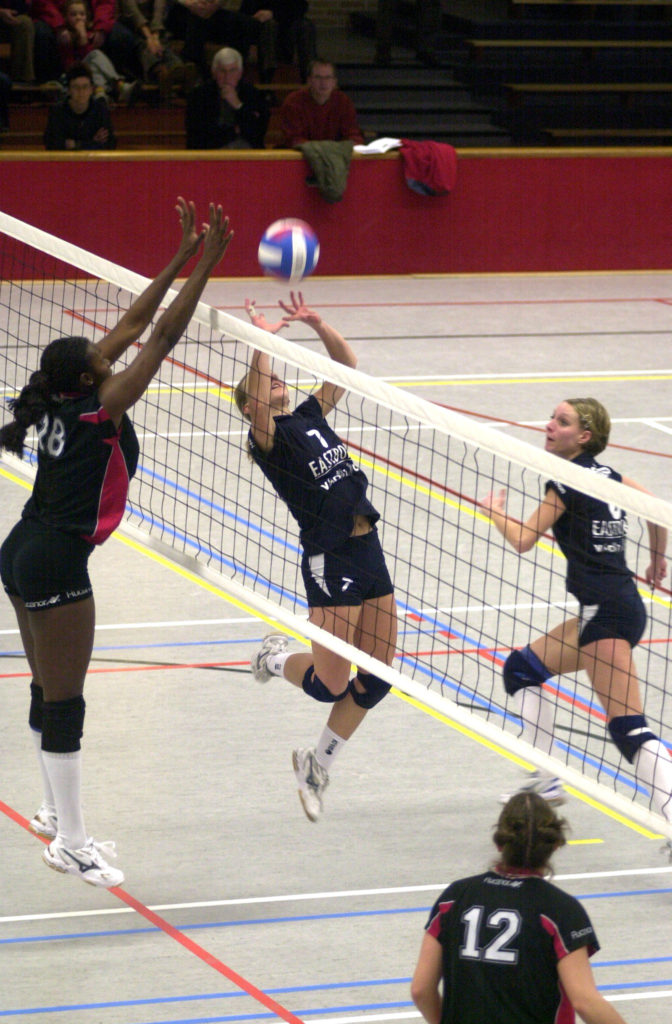Introducing Athlete Ally’s First Volleyball Ambassador, Brooke Rundle

By: Brooke Rundle, Bring It Promotions Volleyball Agency, and Athlete Ally Pro Ambassador
I come from a volleyball family. My mother was a first generation Title IX athlete, playing volleyball at UC Santa Barbara in the 1970’s. My father played for UCLA and then competed on the 1968 Olympic team in Mexico City. That same year, he won the Manhattan Beach Open, for which he was later inducted into the Volleyball Hall of Fame. Growing up I had a lot of volleyball role models, but none of them openly identified as LGBTQ.
Because of my family history, my sights were always set on a career in volleyball. I received a scholarship to play for UC Santa Barbara and led my team to three Sweet 16 appearances in the NCAA tournament. Since there is no professional indoor volleyball league in the United States, I moved to Europe after graduation to play for OK Benedikt (Slovenia) and later Eastborn Volco (Netherlands). Living abroad provided me space to explore my sexual orientation, but I didn’t come out until after I retired from playing.
What kept me closeted as a player? Mostly it was fear. The fear of being ostracized. The fear of being misunderstood. The fear of being judged and shamed. I had internalized homophobic ideas. From the negative stereotypes in mainstream media, to intolerant jokes and offhanded comments among peers, I wanted to avoid the stigma of being a lesbian athlete.

Add to that the expectation of maintaining a thin and feminine physique idealized among female volleyball players. The hyperfemininity common in volleyball culture felt unnatural to me at times. I loathed wearing bows in my hair and was always quick to cover up my skin-tight spandex with baggy shorts or sweatpants after games and practices.
Ultimately, I stayed closeted for so long because I had no community of queer players or coaches to help me navigate being a lesbian in the volleyball arena. There were no models in my sport that I could identify with. I couldn’t picture bringing my whole self into the spotlight on the court.
But hiding my identity took a significant toll. I gradually developed an eating disorder. I burned out of playing professionally much sooner than I’d hoped. My friendships also suffered as a result of my secrecy. For me, coming out of the closet was a necessary step toward healing, not just in volleyball but every area of my life.
The first person I ever came out to was my Dutch teammate Marieke Coenen. Her immediate response was, “I already knew that, but I’m so glad that you finally feel comfortable talking with me about that part of your life.” (It’s funny how you never forget people’s initial response when you’re first coming out.) In that moment, I knew she accepted me completely. Her unwavering support was still clear to me over a decade later, as she and her family were there when my wife and I got married in New York this past summer.
My coming out process has been a series of private conversations like that first one with my former teammate. I never announced it to my team or broadcasted it on social media. It has been a gradual process for me. And through authentic conversations with former players and current college coaches, I have experienced nearly unanimous allyship. I’ve even been surprised by the number of volleyball coaches that have come forward and entrusted me with their own secrets of identifying as LGBTQ.

World Sport Pics
But I still feel a disconnect between the acceptance I have personally experienced in volleyball circles, and the glaring lack of LGBTQ representation in the sport at every level. At the 2019 NCAA women’s volleyball championship, I didn’t see a single resource or display in support of LGBTQ inclusion. Major volleyball organization and tournament websites are also nearly completely void of LGBTQ-supportive content.
My search for inclusion resources eventually led me to Athlete Ally. When I realized there weren’t any LGBTQ ambassadors for volleyball, I knew it was time for me to come out in a more visible way.
That is why I am stepping forward as the first Athlete Ally Ambassador for the sport of volleyball. This is the first time I’ve ever come out publicly. I’m doing it because I don’t want any more young volleyball players to grow up without LGBTQ representation in our sport. I hope other players and coaches will join me in making volleyball a safer and more inclusive sport for future generations.
Want to receive stories like this in your inbox? Sign up here.